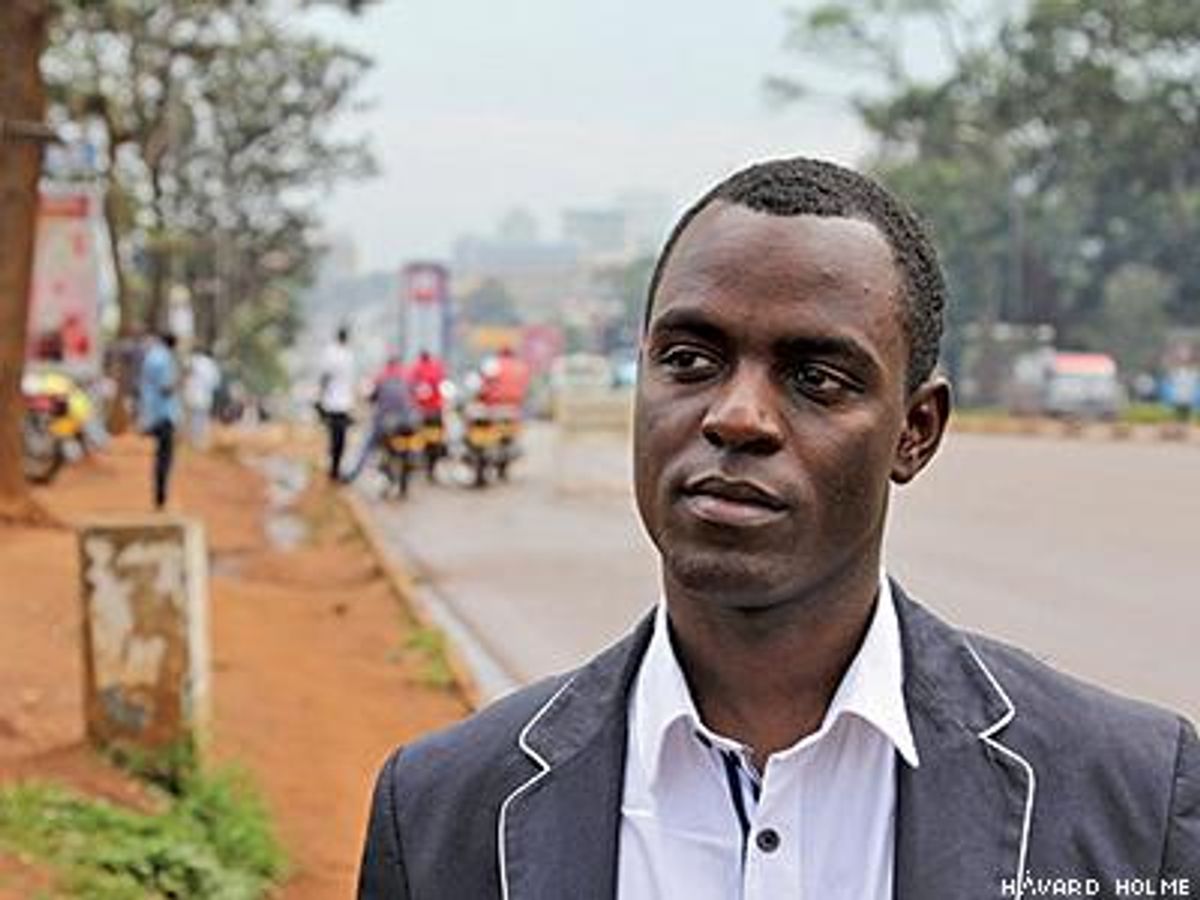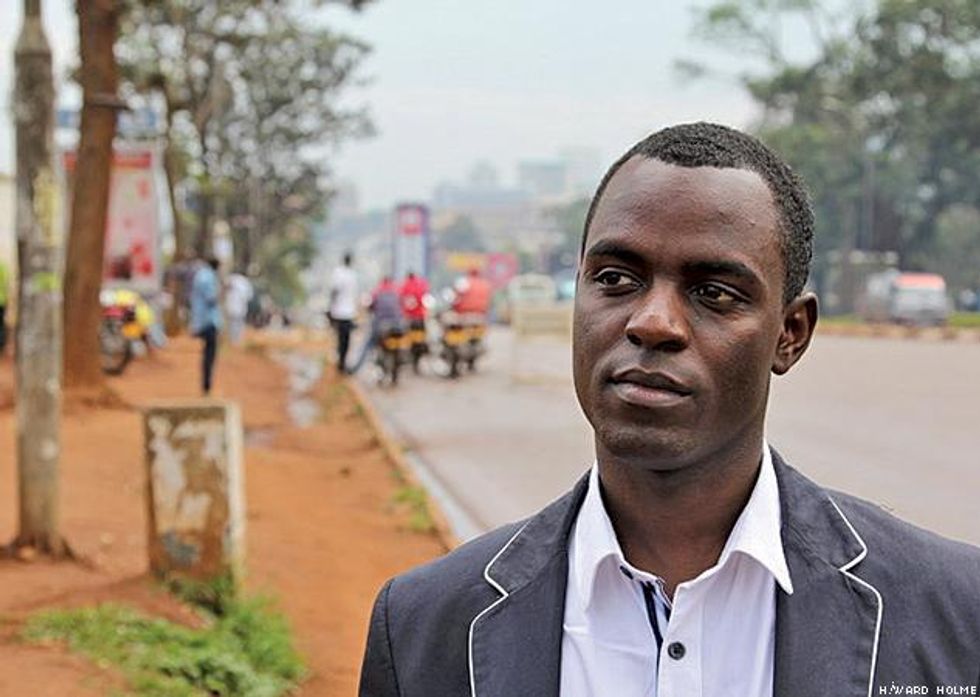
Uganda's most prominent rights activist, Frank Mugisha, was in New York in March to accept a humanitarian award from Riverdale Country School and, on behalf of his organization, Sexual Minorities Uganda, to sue American Christian extremist Scott Lively for conspiring with Ugandan politicians and religious leaders to foment anti-gay hysteria. Lively's influence is tied to the "kill the gays" legislation in that country. The case will likely go to trial in January 2016.
If you manage to get him convicted of crimes against humanity, what change do you think that will bring?
Because it is a civil case, he won't go to prison, but he will have to pay for the damages my organization has suffered because of his conspiracy with Ugandan politicians. Our goal is not actually about the outcome of the case; our goal is the advocacy we've been able to do around the case. Extreme Christians will know that they cannot do these things, that they will be held accountable.
In August 2014, the Ugandan constitutional court annulled the anti-gay law that would have allowed for the death penalty for homosexuality. What has been the aftermath?
They cannot reinstate the same law, but they have brought up another one, which has not yet been introduced in our parliament. It's called "prohibition of unnatural sexual practices," and it doesn't explicitly talk about homosexuality, but it defined homosexuality as an unnatural sexual practice...It talks about promotion of unnatural sexual practices, and then the promotion includes literature, involvement, funding, support, housing, and all that. So it actually becomes worse than the old law.
What can people outside Uganda do?
It's good that you're asking me about Uganda, because most people ask me, "What should people in the U.S. do for Africa?" Each country is different. You need to partner with activists in those countries, partner with human rights organizations, the embassies. The situation in Uganda is like the weather -- it changes. The people on the ground know what is happening, they know the system, how it works.
The U.S. comes off as the country that is very open, and has so many LGBT persons in so many areas. I think if they raise their voices, talk to their allies, and say, "We simply don't like what's happening"...it's seen differently when ordinary persons [speak up] as opposed to politicians. A politician is concerned with power, and an ordinary person is simply concerned about another gay person. Simply ask their representative, "What are you doing about the situation in Uganda?" They have an obligation to their own constituents.


 Uganda's most prominent rights activist, Frank Mugisha, was in New York in March to accept a humanitarian award from Riverdale Country School and, on behalf of his organization, Sexual Minorities Uganda, to sue American Christian extremist Scott Lively for conspiring with Ugandan politicians and religious leaders to foment anti-gay hysteria. Lively's influence is tied to the "kill the gays" legislation in that country. The case will likely go to trial in January 2016.
Uganda's most prominent rights activist, Frank Mugisha, was in New York in March to accept a humanitarian award from Riverdale Country School and, on behalf of his organization, Sexual Minorities Uganda, to sue American Christian extremist Scott Lively for conspiring with Ugandan politicians and religious leaders to foment anti-gay hysteria. Lively's influence is tied to the "kill the gays" legislation in that country. The case will likely go to trial in January 2016.